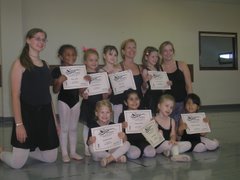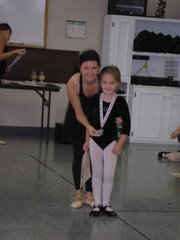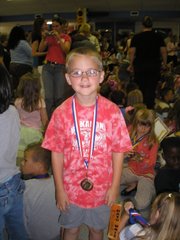The one thing I am most passionate about with my kids is their education. It seems as though we have had a struggle with every kid regarding their education, just when we thought them growing up would be easier it has become more complicated. Zachary is struggling with Math and Science that I'm still trying to wrap my brain around considering he has been an "A" student all year...that is still ongoing. Anna is doing okay but not as good as I'd like for her to be. Then there is Madeline. My darling Madeline who is my internal dialoger, my child who rarely states what she feels, let alone be honest when she is struggling with anything. She is not one to buck the system, if an adult tells her something she will comply.
A few weeks ago I spoke with her teacher about Miss Madeline to find that she was struggling again in reading. I know this is an area of struggle for her, we have been working on this with her for three years, but we thought with retaining her a year we had fixed the problem. After I spoke with her teacher I called a specialist that I had known since Jack was a baby. She happened to have an opening at the end of the week and she would test her to see where she was having problems. She was tested for Irlens a couple of years ago and it was inconclusive, she was tested for dyslexia and that also was inconclusive. I figured with how this all was coming together it was a gift from God. The specialist that tested her was someone who had worked at the kid's school and knew Madeline's teacher.
Once we finished with Madeline's testing she said she knows where she is struggling! Finally, after 2-3 years of struggling, testing, the unknown, we have answers. She has a linguistic disorder, which is a form of dyslexia however not something that would be recognized by the district she attends. Basically when she reads she can pick out the details, those she knows, but it is difficult for her to summarize what is going on in a paragraph and thus having trouble connecting the paragraphs together. In the past couple of years Madeline has begun to enjoy graphic novels, which I never understood why, but after hearing about what she is struggling through I realized that the reason for the graphic novels is because it would help her get the context clues that she needed to finish the stories. They engaged her and she loved them. For her state assessments this year they will ask summary questions about the stories she has read and she will struggle through those. She does not know how to interpret the who, what, and relationship that goes on therefore a chapter book does not create the pictures she needs to see the story.
Here is some of her report:
Madeline is a pretty young lady with an incredible smile. She was initially quiet, but warmed up quickly and cooperated throughout the assessment...
Madeline is a 9-year-old young lady experiencing difficulties in the area of reading. Her history includes ear infections, speech therapy, and a diagnosis of ADHD. The information collected during this assessment indicates that Madeline’s skills in the area of reading comprehension, especially comprehending expository text is at a frustration level. Madeline is able to remember many details about what she has read. She understands basic syntax and vocabulary. However, she is unable to summarize the details in order to draw conclusions about the information. In breaking the paragraph down sentence by sentence it was evident that she is not connecting the events and meaning from one sentence to the next in order to develop the meaning of the paragraph. This difficulty seems to occur with the more “academic”, complex and/or unfamiliar syntax of the sentence. We know that children with this type of difficulty need to have opportunity for explicit modeling, practice and immediate corrective support in this skill area to do this independently.
This type of language based comprehension issue could also affect her performance on the independent vocabulary worksheet assignments of the new reading adoption of her school district. The language used on these worksheets is more academic. Madeline would benefit from explicit instruction in the structure of the definitions as well as how to eliminate the answer choices most unlike the vocabulary word and choosing the correct answer choice. For example, a student has to summarize (a weakness of Madeline’s) the definition she reads in the answer choices and insert it back into the sample sentence. She may know a meaning of the vocabulary word, but have difficulty understanding “shades” of meaning and the syntax of the answer choices.
It is recommended that intervention focus on comprehension of text at the sentence level using explicit instruction in the area of Questioning (learning to ask and answer her own questions) throughout the reading of the text, Summarization strategies (eliminating extraneous details; focusing on the reoccurring information) and building the comprehension of a variety of complex syntax structures (this instruction would include generating her own sentences using the model sentence structure). Initial Questioning strategy should involve the practice of generating two important questions and asking them at the sentence level:
So there we are another nut to crack, more research to examine to make sure Madeline does not fall through the cracks. We are working steadily with all of our kids, it seems as though none of them can hold their own, however I know that with the foundation we are giving them and the support they have with us and their teachers they will one day fly on their own. It will be that day that I will truly feel a small sense of relief. The best part of the entire evaluation is Madeline's comments after, she said: "I'm Smart!" I'm so glad she finally realizes how smart she is!!








No comments:
Post a Comment